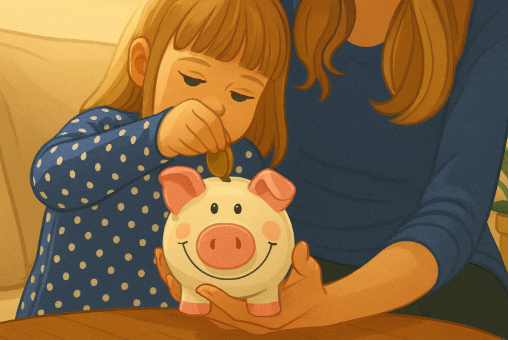Introduction: Why is Declaring Savings Interest Important in the UK?
If you earn interest from your savings in the UK, it’s essential to know whether HMRC needs to be informed. While much of the tax process is automated, notifying HMRC of savings interest depends on your total income, the amount of interest earned, and whether you’re already in the Self Assessment system.
Failing to report taxable interest may lead to unexpected tax bills or penalties. This guide explains exactly do I have to notify HMRC of savings interest, how much interest is tax-free, and how to stay compliant while maximising your allowances.
What Counts as Savings Interest for HMRC?
Savings interest is income you earn from placing your money in various financial accounts. HMRC treats it as taxable income, with some exceptions.
What Types of Interest Are Taxable?
You may need to notify HMRC of interest earned from:
-
High street or online bank accounts
-
Building society accounts
-
Credit union savings
-
Fixed-rate bonds
-
Government-backed NS&I products (excluding Premium Bonds)
-
Peer-to-peer lending platforms
-
Foreign savings accounts (in GBP or other currencies)
“Savings interest, unless sheltered in an ISA or other exempt vehicle, is taxable and must be declared when allowances are exceeded.” – HMRC Tax Manual
How Much Savings Interest Can I Earn Tax-Free in the UK?

What is the Personal Savings Allowance (PSA)?
The Personal Savings Allowance allows you to earn a certain amount of interest each tax year without paying any tax:
| Income Tax Band | Allowance |
|---|---|
| Basic rate (20%) taxpayer | £1,000 |
| Higher rate (40%) taxpayer | £500 |
| Additional rate (45%) | £0 |
This means if you’re a basic rate taxpayer, you can earn up to £1,000 of interest tax-free per tax year.
What is the Starting Rate for Savings?
If your income (excluding savings) is below £17,570 (2025/26), you may qualify for an additional £5,000 of interest tax-free under the starting rate for savings. This is especially useful for low earners and pensioners.
Do ISAs Count Towards the PSA?
No. Any interest earned in an ISA (Individual Savings Account) is completely tax-free and does not count towards your PSA or need reporting to HMRC.
Do I Have to Notify HMRC of Savings Interest If It’s Within My Allowance?
When You Don’t Need to Notify HMRC
You are exempt from reporting savings interest to HMRC if
-
It is within your Personal Savings Allowance
-
You only earn interest from tax-free ISAs
-
Your bank automatically notifies HMRC of the interest whether you are employed or retired.
In these cases, HMRC uses the information from banks and adjusts your tax code accordingly.
“Most savers don’t need to take any action. Banks report interest, and HMRC adjusts tax codes when needed.” – MoneySavingExpert
When Do I Need to Notify HMRC of Savings Interest?
You must notify HMRC if:
- Your total savings and investments bring in almost £10,000.
-
Your interest exceeds your PSA, and HMRC hasn’t already adjusted your tax code
-
You receive interest from foreign bank accounts
- You have untaxed savings income and are a higher rate or extra rate taxpayer
-
You are self-employed and not taxed under PAYE
In these scenarios, you may need to file a Self Assessment tax return.
How Do I Report Savings Interest to HMRC?

Method 1: Through Your Personal Tax Account
Most taxpayers can log into their HMRC Personal Tax Account and:
-
View interest HMRC already knows about
-
Add or correct savings interest information
-
Check their current tax code
-
Avoid Self Assessment if their situation is simple
Access your account here
Method 2: Self Assessment Tax Return
If filing a tax return is mandatory, you should:
-
Register for Self Assessment (if not already registered)
-
Submit your tax return by 31 January (for online)
-
Declare your gross interest income (before tax deductions)
What Records Should I Keep?
-
Annual interest summaries or tax certificates
-
Bank or building society statements
-
Breakdown of joint account interest (50% each, unless stated otherwise)
-
Details of foreign interest and any tax paid abroad
What Happens If I Don’t Report Taxable Savings Interest?
Failing to report interest above your allowance may result in:
-
Tax underpayments
-
HMRC sending a Notice of Correction
-
Interest and penalties on late payments
-
Possible investigation for deliberate omission
How Can I Legally Reduce Tax on Savings Interest?

1. Use ISAs First
Save in:
-
Cash ISAs for guaranteed interest
-
Stocks and Shares ISAs for long-term tax-free growth
-
Up to £20,000 per year (2025/26 ISA allowance)
2. Split Savings Between Spouses
Each partner receives their own PSA. Couples can legally split savings to double tax-free interest.
3. Use Premium Bonds
National Savings & Investments (NS&I) Premium Bonds offer:
-
Tax-free prizes
-
No declared interest
-
No risk to capital (but no guaranteed return)
4. Claim Starting Rate for Savings
If your total income is low, claim up to £5,000 extra tax-free under the starting savings rate.
What is the HMRC Personal Tax Account and How Can It Help?
The Personal Tax Account is a safe and cost-free HMRC portal that allows you to:
-
Check recorded interest earnings
-
Update bank details and savings accounts
-
See if your interest is being taxed properly
-
Avoid needing a Self Assessment for small changes
This tool is especially helpful if you have multiple sources of savings interest or want to stay on top of your tax situation in real-time.
Is Interest on Children’s Savings Accounts Taxable?
Yes, under certain conditions.
-
If a parent gives money to a child and it earns over £100 per year in interest, it counts as the parent’s income and may need to be declared.
-
This does not apply to gifts from grandparents or other relatives.
- Child Trust Funds and Junior ISAs are entirely tax-free.
Conclusion: Do I Have to Notify HMRC of Savings Interest?
You only need to notify HMRC of savings interest if it exceeds your tax-free allowances or is not being taxed via PAYE. In most cases, HMRC receives this data automatically from your bank. However, foreign interest, high-value interest, and additional rate taxpayers must take extra care to report properly.
To avoid errors:
-
Check your Personal Tax Account
-
Understand your Personal Savings Allowance
-
Seek advice if your situation is complex or involves foreign savings
You may avoid fines and make sure you’re not overpaying taxes on your hard-earned cash by adhering to HMRC regulations.
FAQs
Do pensioners need to notify HMRC of savings interest?
Only if their interest exceeds their PSA or if they have untaxed savings. Pensioners with income under the threshold may qualify for the starting savings rate.
Will HMRC automatically know about my savings interest?
Yes. HMRC receives interest reports directly from the majority of UK financial institutions.
How does HMRC know about my savings interest?
Banks and building societies report your interest directly to HMRC.
Is HMRC warning for anyone with over £3,500 in their bank account?
No, HMRC does not tax you based on your balance — only the interest you earn matters.
What happens if I don’t declare savings interest?
You may face tax bills, penalties, or compliance checks from HMRC.
How does HMRC know my savings interest online?
HMRC matches reported interest to your Personal Tax Account automatically.
How can I avoid paying tax on savings interest?
Use ISAs, stay within your Personal Savings Allowance, or qualify for the starting savings rate.

I’m Joe Chris, co-author at ukbusinessmag.co.uk and a long-time enthusiast of all things business and finance. My background is in digital marketing and e-commerce, and I love diving into trends that impact the UK business landscape. Through my writing, I aim to make useful, real-world advice accessible to business owners.



